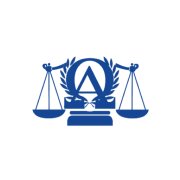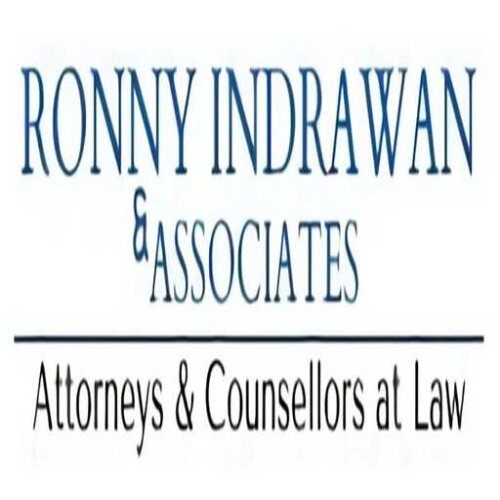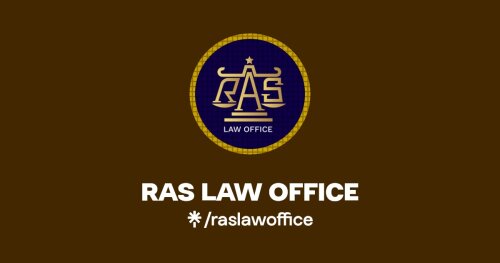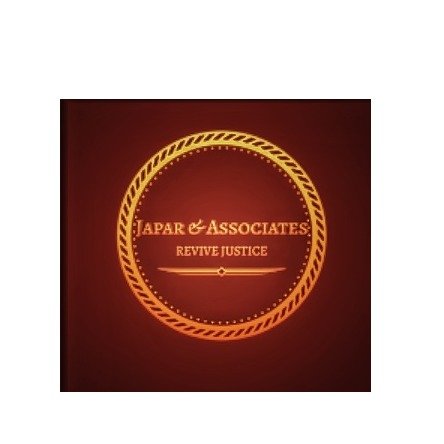Best Energy Regulatory Law Lawyers in Surabaya
Share your needs with us, get contacted by law firms.
Free. Takes 2 min.
List of the best lawyers in Surabaya, Indonesia

Jiwangga Law Office | Lawyer Surabaya | Advokat Surabaya | Pengacara Surabaya
30 minutes Free ConsultationAbout Energy Regulatory Law in Surabaya, Indonesia
Energy Regulatory Law in Surabaya, Indonesia, governs how energy resources such as electricity, gas, and renewable energy are produced, distributed, and consumed within the city and its surrounding areas. As a bustling metropolitan center and the economic hub of East Java, Surabaya relies heavily on robust energy infrastructures. The law covers matters relating to licensing, tariffs, environmental compliance, safety standards, and the rights and obligations of energy providers and consumers. This legal field is shaped by both national regulations set by the Indonesian central government and by local Surabaya ordinances aimed at addressing the unique needs of the region.
Why You May Need a Lawyer
Individuals, businesses, and organizations may need legal help concerning Energy Regulatory Law in Surabaya for a variety of reasons:
- Setting up new electricity or gas connections for homes, factories, or offices
- Negotiating power purchase agreements or energy supply contracts
- Resolving disputes with state-owned or private energy providers
- Dealing with issues related to renewable energy development, such as solar or wind projects
- Ensuring compliance with safety, environmental, or technical regulations
- Applying for, renewing, or challenging energy business licenses
- Responding to government investigations or audits by regulatory bodies
- Pursuing compensation for outages, service disruptions, or damages caused by energy operations
Local Laws Overview
The landscape of Energy Regulatory Law in Surabaya is influenced by several key national and local regulations. The most significant ones include:
- Law No. 30 of 2009 on Electricity - This national law regulates the organization and operation of electricity supply activities. It covers licensing, tariff approval, and consumer rights.
- Law No. 22 of 2001 on Oil and Gas - Governs exploration, production, and distribution of oil and gas resources, including safety and environmental requirements.
- Government Regulation No. 14 of 2012 - Outlines the processes for electricity supply business, including national and regional licenses.
- Surabaya Local Regulations - The City Government of Surabaya issues regulations to support energy efficiency, encourage renewable initiatives, and handle local distribution networks.
- Energy Regulatory Agency (Badan Pengatur Hilir Migas and Directorate General of Electricity) - These government bodies oversee the implementation of energy regulations in Surabaya.
Together, these laws ensure that energy providers operate responsibly, consumers are protected, and energy resources are developed in a sustainable and orderly manner.
Frequently Asked Questions
What is Energy Regulatory Law?
Energy Regulatory Law is a field of law that sets out the rules for the production, distribution, and use of energy, including electricity, gas, and renewables. It encompasses licensing, tariff setting, safety, and consumer rights in the energy sector.
Who regulates energy in Surabaya?
Energy in Surabaya is regulated by both national agencies, such as the Directorate General of Electricity and the Downstream Oil and Gas Regulatory Agency (BPH Migas), and by the Surabaya city government through local ordinances.
What do I do if I have a dispute with an electricity provider?
Start by submitting a complaint to the provider. If the issue is unresolved, you can escalate it to the regional office of the Directorate General of Electricity or seek legal counsel to understand your rights and options.
Can private companies provide electricity in Surabaya?
Yes, private companies can operate in Surabaya’s energy sectors, provided they obtain the required licenses from the relevant regulatory bodies at the national and local levels.
Are there incentives for using renewable energy in Surabaya?
Indonesia offers regulatory frameworks and incentives for renewable projects, which are often supported by local Surabaya policies promoting clean energy development.
How are electricity tariffs regulated?
Tariffs are set by a combination of national regulations from the Ministry of Energy and Mineral Resources and local government directives, often reviewed regularly to reflect operational and environmental costs.
What licenses are needed to run an energy business?
You need business licenses and specific operational permits, which can include a Business License for Electricity Supply (IUPTL) or licenses for oil and gas activities, acquired from national and regional authorities.
What environmental regulations apply to energy projects?
Energy projects in Surabaya must comply with national environmental laws, including environmental impact assessments (AMDAL), waste management protocols, and emission standards enforced by the Ministry of Environment and local agencies.
What are my obligations as an energy consumer?
Consumers must pay tariffs promptly, use energy safely, report faults or hazards, and adhere to contractual terms of service.
How can a lawyer assist with compliance issues?
A lawyer can help interpret complex regulations, handle paperwork for permits, represent you in audits or investigations, and guide you through resolving any compliance breaches to avoid penalties.
Additional Resources
If you are seeking more information or need help with Energy Regulatory Law in Surabaya, consider contacting or referring to the following bodies and organizations:
- Directorate General of Electricity (Ditjen Ketenagalistrikan) - Ministry of Energy and Mineral Resources
- Downstream Oil and Gas Regulatory Agency (Badan Pengatur Hilir Migas / BPH Migas)
- Surabaya City Government Office
- Indonesian Ministry of Environment and Forestry
- Indonesian Renewable Energy Society (METI)
- Legal Aid Institutes or Public Legal Assistance Centers in Surabaya
Next Steps
If you believe you need legal assistance regarding Energy Regulatory Law in Surabaya, it is important to:
- Gather all relevant documents and correspondence relating to your energy issue
- Identify the specific law or regulation involved in your situation
- Consult a qualified legal professional with experience in energy law, preferably based in Surabaya
- Prepare a list of questions or concerns for your consultation to ensure you cover all key points
- Follow any advice or recommended steps provided by your lawyer, including negotiating with energy providers or government bodies
Navigating Energy Regulatory Law can be complex. Professional legal guidance can help protect your interests and ensure compliance with all local and national energy regulations.
Lawzana helps you find the best lawyers and law firms in Surabaya through a curated and pre-screened list of qualified legal professionals. Our platform offers rankings and detailed profiles of attorneys and law firms, allowing you to compare based on practice areas, including Energy Regulatory Law, experience, and client feedback.
Each profile includes a description of the firm's areas of practice, client reviews, team members and partners, year of establishment, spoken languages, office locations, contact information, social media presence, and any published articles or resources. Most firms on our platform speak English and are experienced in both local and international legal matters.
Get a quote from top-rated law firms in Surabaya, Indonesia — quickly, securely, and without unnecessary hassle.
Disclaimer:
The information provided on this page is for general informational purposes only and does not constitute legal advice. While we strive to ensure the accuracy and relevance of the content, legal information may change over time, and interpretations of the law can vary. You should always consult with a qualified legal professional for advice specific to your situation.
We disclaim all liability for actions taken or not taken based on the content of this page. If you believe any information is incorrect or outdated, please contact us, and we will review and update it where appropriate.
















